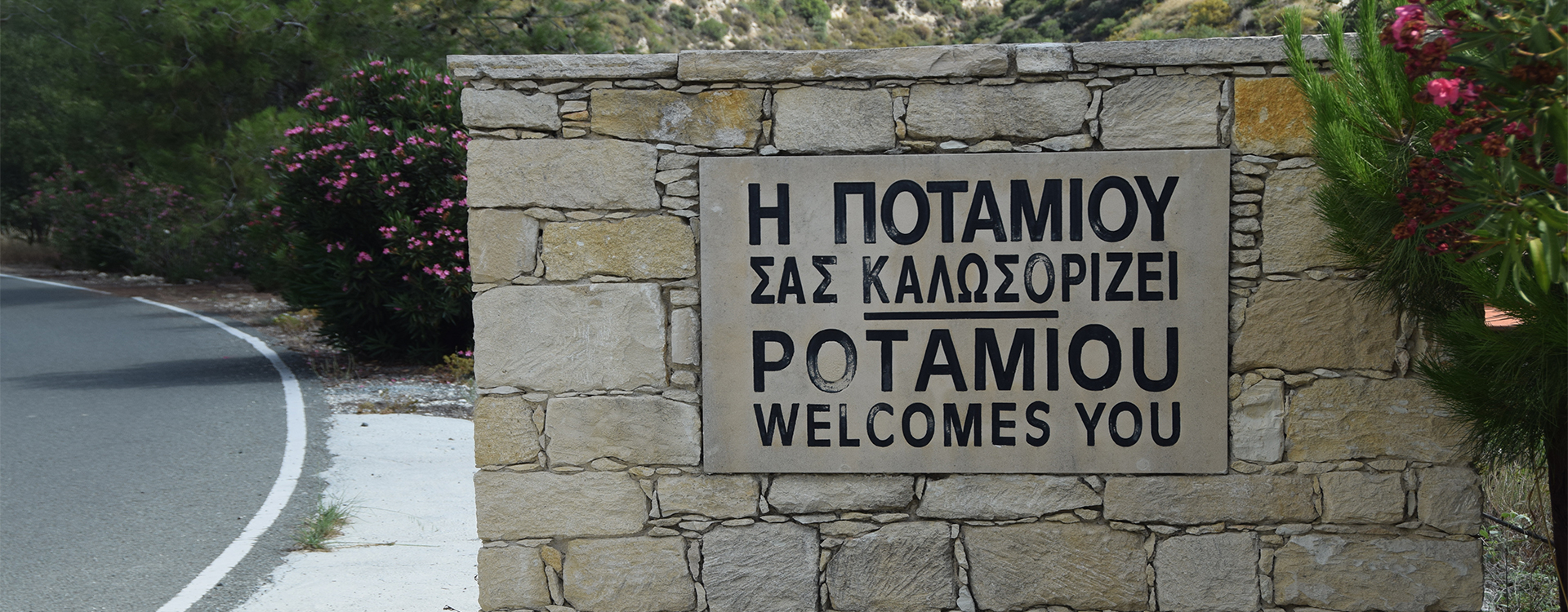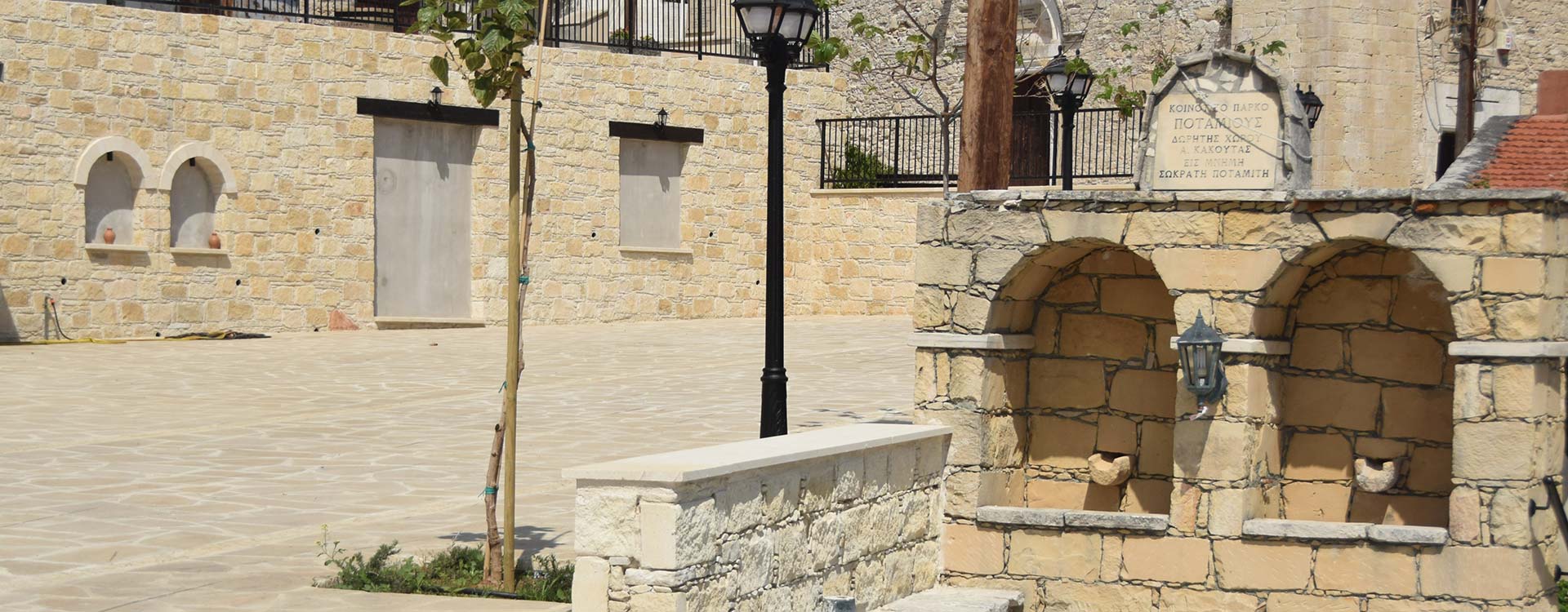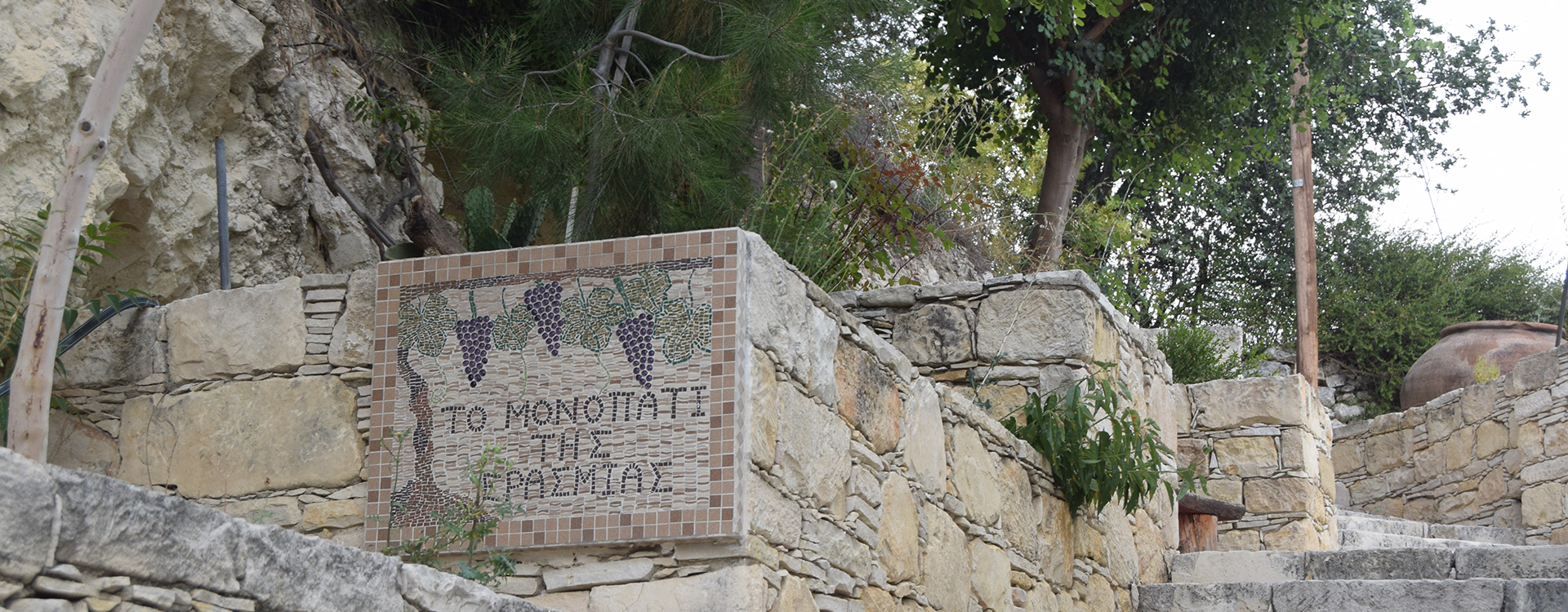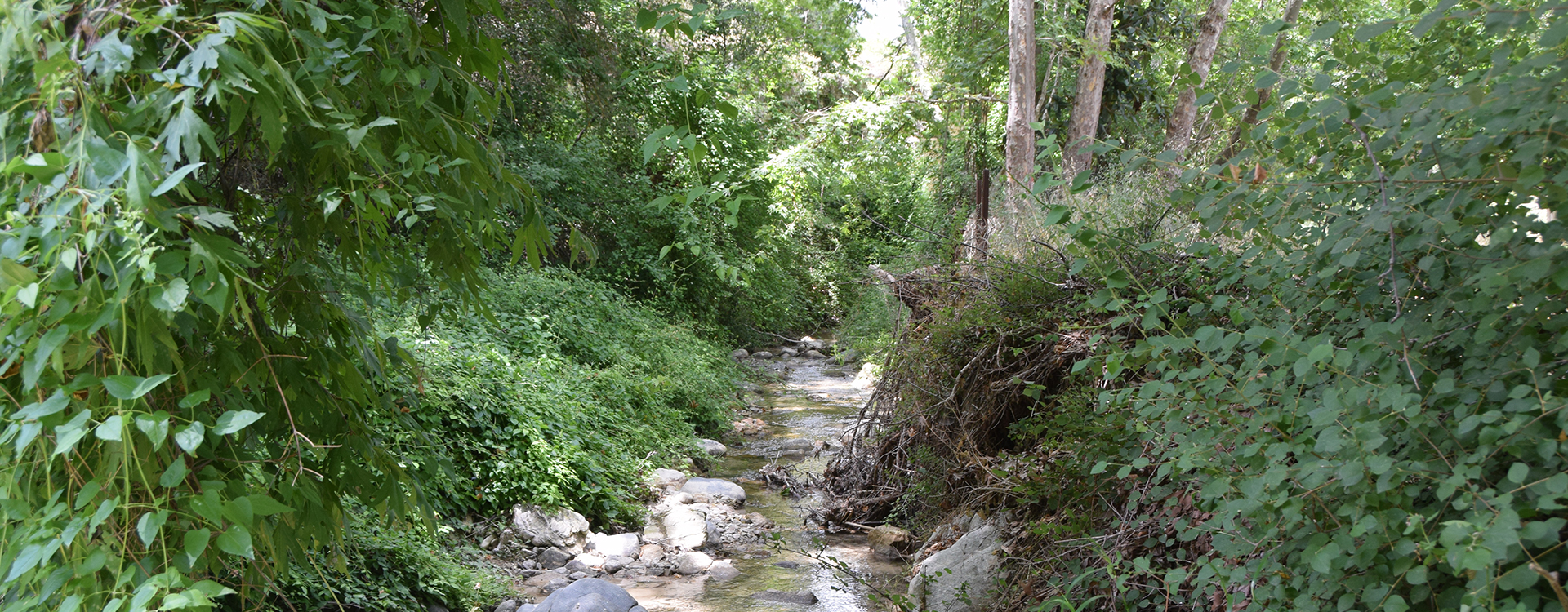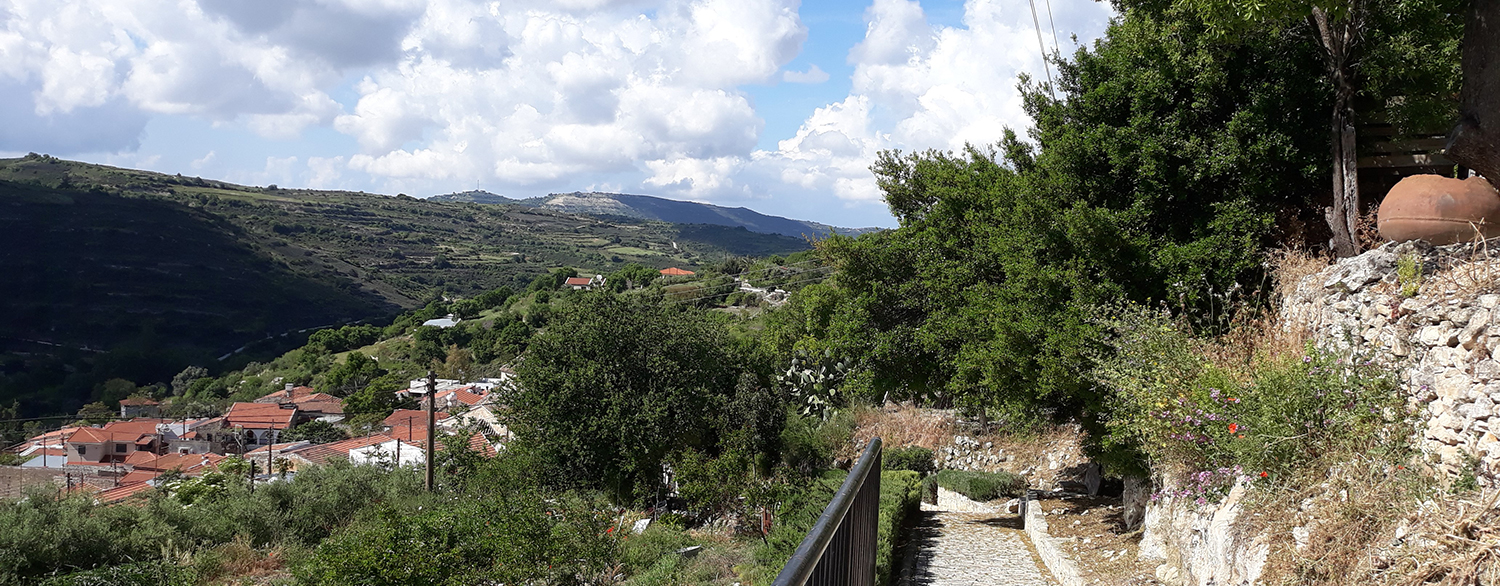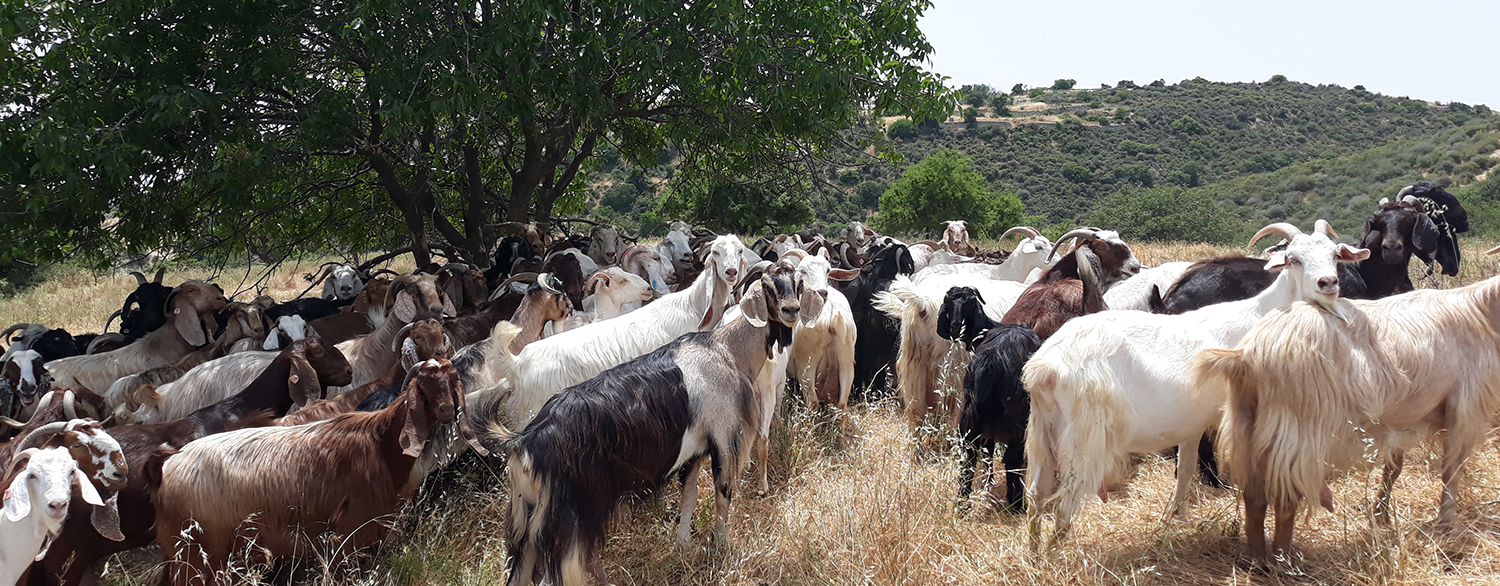History
The Village
Potamiou, a beautiful picturesque village surrounded by high mountain peaks, vineyards and rich vegetation, is built on a mean altitude of 670 metres, on the west bank of the “Chapotami” river.
The village is located 39 km northeast of the city of Lemesos and it neighbours with the villages Omodos, Mallia and Kissousa.
Potamiou is among the vine villages of the geographical region of Lemesos-Paphos. At the lime grounds of Potamiou there are vineyards which produce grapes used to make wine, as well as cultivations with fruit trees such as apple, pear, plum and peach trees. Cultivated pieces of land interchange with uncultivated pieces of land with a variety of natural vegetation.
The residents of Potamiou, using grapes from their vineyards, produce excellent quality wines, the traditional Cypriot alcohol drink “zivania”, as well as traditional dishes such as “soutzoukos”, “palouzes” and “kiofterka”.
Houses of traditional architecture with tiled roofs or cubicles, picturesque upper floors with narrow balconies, wooden and front doors with a distinctive decoration, as well as large spacious rooms, form the picturesque neighbourhoods of Potamiou.
Naming
The name of the village appears to be linked to its location, meaning with the river that flows west of it. Karouzis distinctively writes that “Potamiou has obviously borrowed its name from this river”, “Chapotami”.
Old written texts refer to the name of the village in various ways which have the Greek word “potamos” as a common root. In particular, De Mas Latri calls the village “Potami” (river), but also uses its present name.
Historical background
According to the Great Cyprus Encyclopaedia, Potamiou has existed since the medieval years. More specifically, as De Mas Latrie remarks and the Great Cyprus Encyclopaedia preserves, the village used to be a royal estate during the Frankish occupation.
The past of Potamiou appears to be of particular interest. During the Turkish occupation, scholars and priests from Potamiou were among the distinguished.
According to tradition, as the Great Encyclopaedia writes, the village used to constitute the headquarters of a bishopric, possibly during the Venetian Occupation, but also during the first period of the Turkish occupation (1570-71). The encyclopaedia also adds that during the same period, the village ecclesiastically came under the Episcopal region of Pafos. Although there is no evidence that Potamiou had indeed been the base of the bishopric, the Great Cyprus Encyclopaedia underscores that “the construction of a large church in 1551 (according to an inscription above its south entrance) might possibly be considered as some form of indication”.
What is also noteworthy is the fact that Potamiou gave birth and raised Neophytos Rodinos, the most well-known Greek prose writer of the 17th century. His works, as the residents of Potamiou proudly remark, are “scattered from the east to the west”.
Important attractions
One of the most ancient and impressive monuments of the area is the chapel of Agios Mnasonas, the remains of which are located in the southwestern side of the village and are dated back to 300 A.D. According to tradition, past residents of Potamiou built the chapel at the location where Agios Mnasonas used to live in the period when he taught Christianity with his miracles and virtue.
Under the chapel there are catacombs with ventilations on the walls. Placed in one of these catacombs of the chapel is a holy relic, the left arm of the Saint. The Department of Antiquities began intensive maintenance efforts in 2008 in order to restore the chapel. However, these works will not be continued in 2009 and for this reason the community is searching for sponsors to finance the completion of the restoration works.
A Venetian bridge in the southern side of the village is one of the most beautiful sights of Potamiou. The Venetians built the bridge to connect Potamiou with the villages of Vouni and Koilani, which were commercial and cultural centres at the time. At the same area there are two very significant trails which the community of Potamiou is making efforts to register as Nature Trails.
Sources:
G. Valetas, Neophytos Rodinos (The nightingale of the Turkish Occupation)
Giorgos Karouzis, Strolling Around Cyprus, Lemesos, City and District, Lefkosia 2001.
Annual magazine of the Association of Expatriates and Friends of Potamiou, 1999
Great Cyprus Encyclopaedia, v.12
18th century newspaper
Square
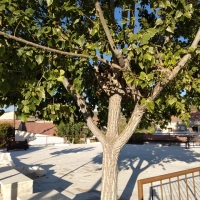
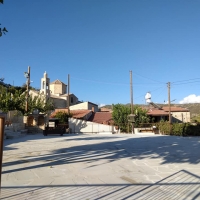
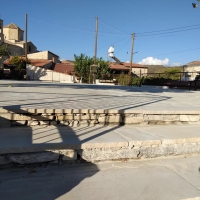
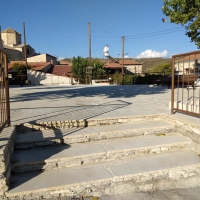
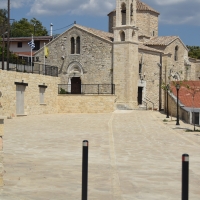
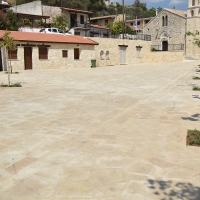
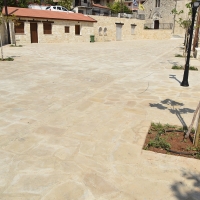
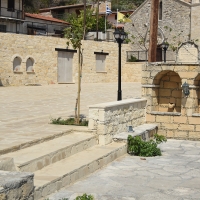
Projects
Completed Projects:
- Construction of a store house with restrooms located in the central square, which has also been renovated and extended with paved tiles in front of the church.
- Tree planting of 29 plane trees in the area of Argaki (shepherd’s cave)
- Tree planting of two kinds of cypresses (50n cypresses) at the entrance of the village in order to create a passage.
- In addition, supportive walls have been built in two locations in our community because there was a risk of land sliding.
- Community Council offices
- Infirmaries
- Community coffee shop
- Road widening outside Agios Mnasonas
- Road widening towards Kissousa.
- Widening and stone lining of the road leading outside the village of Potamiou.
- Road widening towards the location “Poumata”.
Projects under construction:
- Nature Trail creation. Construction of retaining walls built with stone along the Trail, as well as construction of stony stairs and roads accompanied by flower gardens.
Scheduled Projects:
- Restoration of the old Primary school and its transformation to a Service Centre of Alternative Tourism.
- Creation of Parking place at the location in front of ‘the Shepherd’s Cave’
- Construction of a new bigger Water Tank in the northern part of the community.
- Reshaping of the square and construction of stony roads in the surrounding area. The project has been included in the town planning and the cost for its completion will exceed the amount of 600 000 Euros.
Home Repairs
Recently, five houses have been restored which are claimed to be protected and preserved.
In 2008 the erection of one more house began at the heart of the village and they will follow even more.
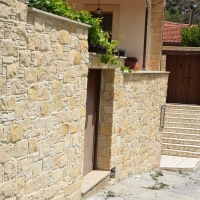
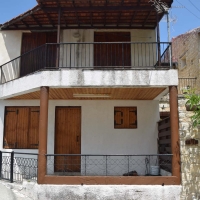
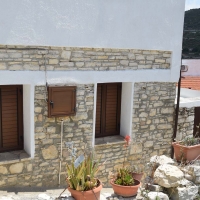
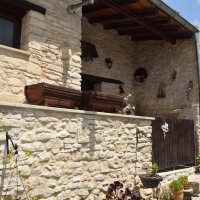
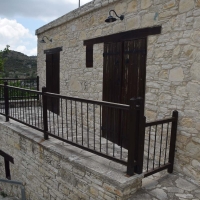
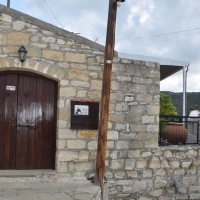
Emigrants and Friends of Potamiou
The Expatriates and Friends of Potamiou have established an Association having set the objective of upgrading the village, while they closely cooperate with the Community Council to fulfill their objective.
The administrative committee is formed by:
- Kypros Kountouris
- Lampros Lamprianou
- Lampros Mavrikiou
- Lenia Manoli
- Stelios Theodorou
- Christakis Chrysanthou
- Ntinos Kokkinos
The Association of Expatriates and Friends of Potamiou undertakes the organization of various events such as the annual dancing party and the carnival dance.
Source:
Potamiou Community Council
Palouzes Feast
Useful information
| Name | Telephone |
| Father Marios – Priest Church of Agia Marina | 99429165 |
| Pachna Police Station | 25816228 |
| Pachna Regional Medical Center | 25816224 |
| Ambulance (Pachna) | 112 |

